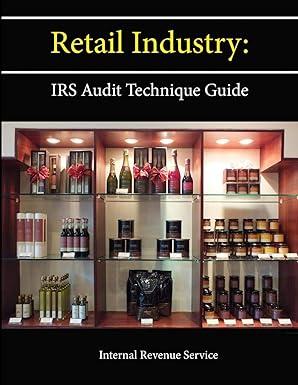Question
1. Robert Smith owns 20% of the shares of Quarks Inc., a Canadian qualified small business corporation. He purchased the shares from a previous shareholder
1. Robert Smith owns 20% of the shares of Quarks Inc., a Canadian qualified small business corporation. He purchased the shares from a previous shareholder for $50,000. The stated paid up capital of the shares is $10,000. Two other shareholders own equal portions of the remaining shares of Quarks. Robert has decided to sell his shares, which have a market value of $120,000. The shares are to be sold either to the two other shareholders, or back to the corporate treasury. All three shareholders used all of their capital gains deductions earlier in the year. Robert has employment income of $185,000, a capital gain in the amount of $50,000, and property income of $20,000 for the current year. All three shareholders are in a 50% tax bracket. The marginal rate on dividends is 43%. The corporate tax rate for Quarks is 13%. Required: A) Determine the tax cost for Robert is he sells his shares to: 1) the other shareholders. 2) the corporate treasury. B) Determine the cost of the share purchase for: 1) the other shareholders, assuming that the purchase will be made using dividend income paid to the two shareholders from the corporation. 2) the corporation, assuming that the purchase will be made from business profits. C) Which option is preferential for 1) Robert and 2) the other shareholders? D) What is the significance of Robert's $50,000 capital gain received in the year if he were to sell his shares back to the corporate treasury?
Step by Step Solution
There are 3 Steps involved in it
Step: 1

Get Instant Access to Expert-Tailored Solutions
See step-by-step solutions with expert insights and AI powered tools for academic success
Step: 2

Step: 3

Ace Your Homework with AI
Get the answers you need in no time with our AI-driven, step-by-step assistance
Get Started


